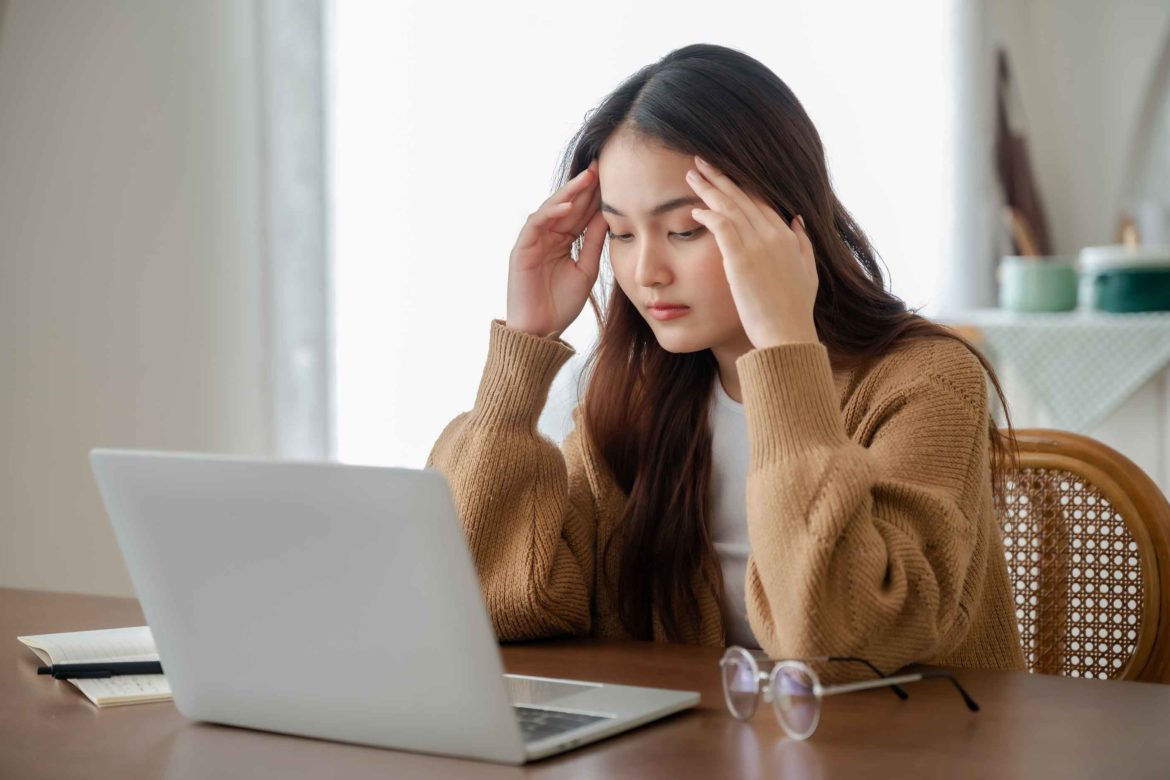Feeling completely drained and overwhelmed with stress? Are you experiencing both physical and mental exhaustion from work that deters you from being productive at work? If so, you might be experiencing burnout.
In 2019, the World Health Organisation (WHO) officially recognised burnout as an occupational phenomenon that is a result from chronic workplace stress that is not successfully managed. Burnout is characterized by three symptoms:
1. Feelings of energy depletion or exhaustion
2. Negativity or cynicism related to your job
3. Reduced professional efficacy
Singaporeans are typically ranked highly on having the most stressed out workers in the world. According to a study by Mercer, 1 in 5 Singaporeans feel de-energised at work, which is twice as high as the Asia average and 6% higher than the global average [1]. Another study by HCM technology provider Ceridian’s 2022 Pulse of Talent report has shown that more than 9 in 10 workers (92%) in Singapore are experiencing burnout, with 9 in 25 (36%) reporting high or extreme levels. Based on their research, such feelings of burnout is mainly attributed to increased workloads (49%), pressure to meet deadlines (37%) and long working hours (33%) [2].
Long-term burnout not only negatively impacts your working performance, it can also cause detrimental effects on your physical health. Studies have shown that burnout can increase one’s risk of certain cardiovascular diseases, such as myocardial infarction, ischemic heart diseases, stroke and sudden cardiac death [3]. This is why it is important to get to the root of the problem before it manifests into more complicated health problems.
In this article, we will share some treatments and therapies at Oriental Remedies that can help uplift you physically and mentally, as well as target symptoms of burnout to boost your productivity.
TCM Recommended Treatments to help manage burnout
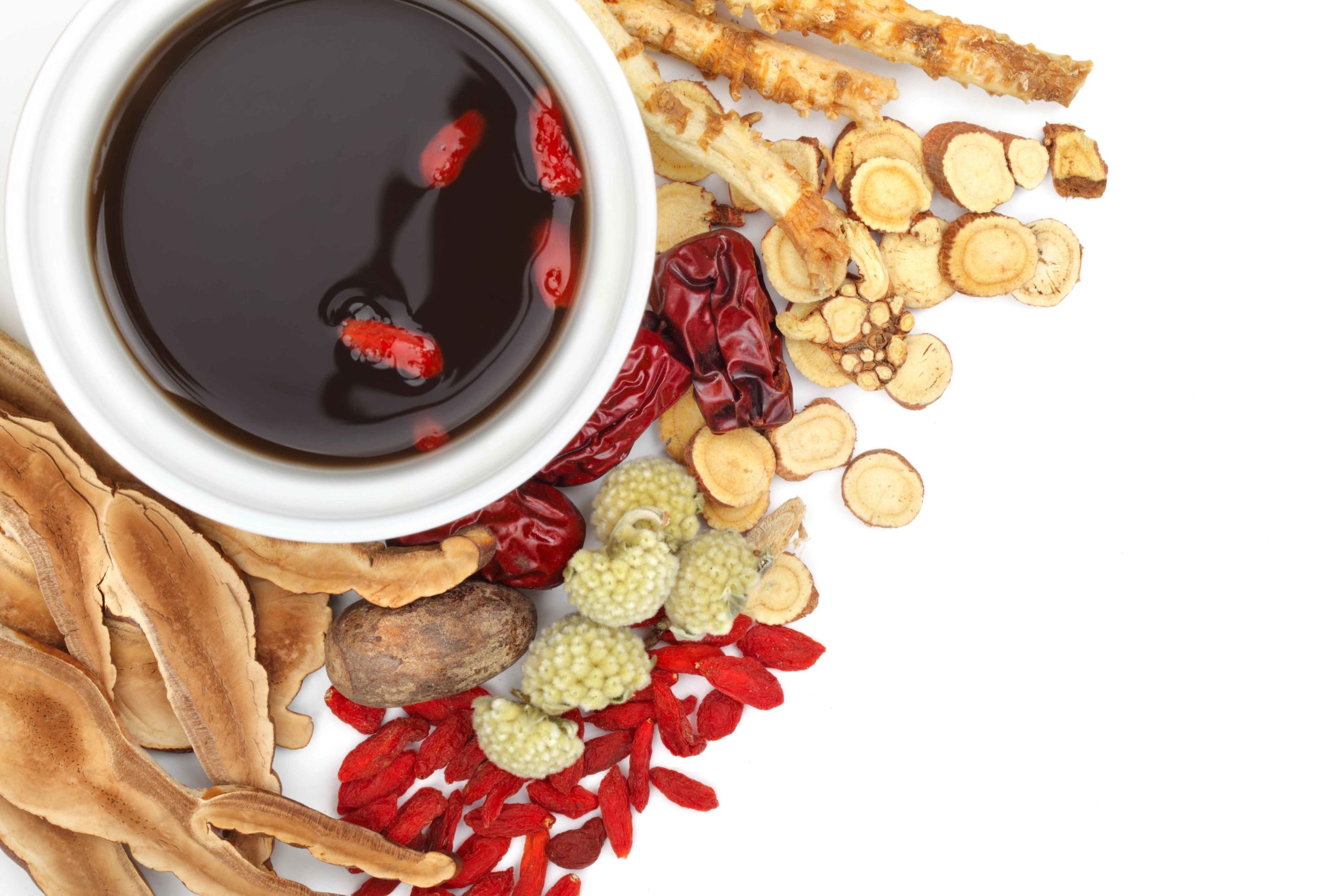
The root cause of burnout in TCM is Kidney deficiency, and the health of our Kidneys are presented through our brain (or our cognitive function), bones, ears and hair. As we age, our Kidney Qi or energy will decline, which is why people may experience symptoms such as memory loss, bone issues like osteoporosis, deafness and hair loss as they age. Unfortunately, our Kidney Qi can be weakened by factors such as poor lifestyle habits. Such habits include our sleeping habits, diet, as well as long hours of physical and mental exertion without proper rest, and these are typically signs of burnout.
To counter this, TCM works by nourishing the Kidneys. Herbs such as goji berries (枸杞子) and cinnamon (肉桂) are commonly used to boost the Kidney Yin and Yang respectively. Ginseng (人参) is a premium herb that also helps with burnout by helping to boost one’s vital energy, strengthen the immune system, and improve one’s physical and mental capacity. In terms of formulas, Xiao Yao San (逍遥散) is commonly used as it can soothe the Liver, which is also associated with stress and anger, one of the emotions typically presented by people experiencing burnout.
It is recommended to consult a TCM practitioner so that a formula that is best targeted for your individual constitution can be prescribed to suit your needs.
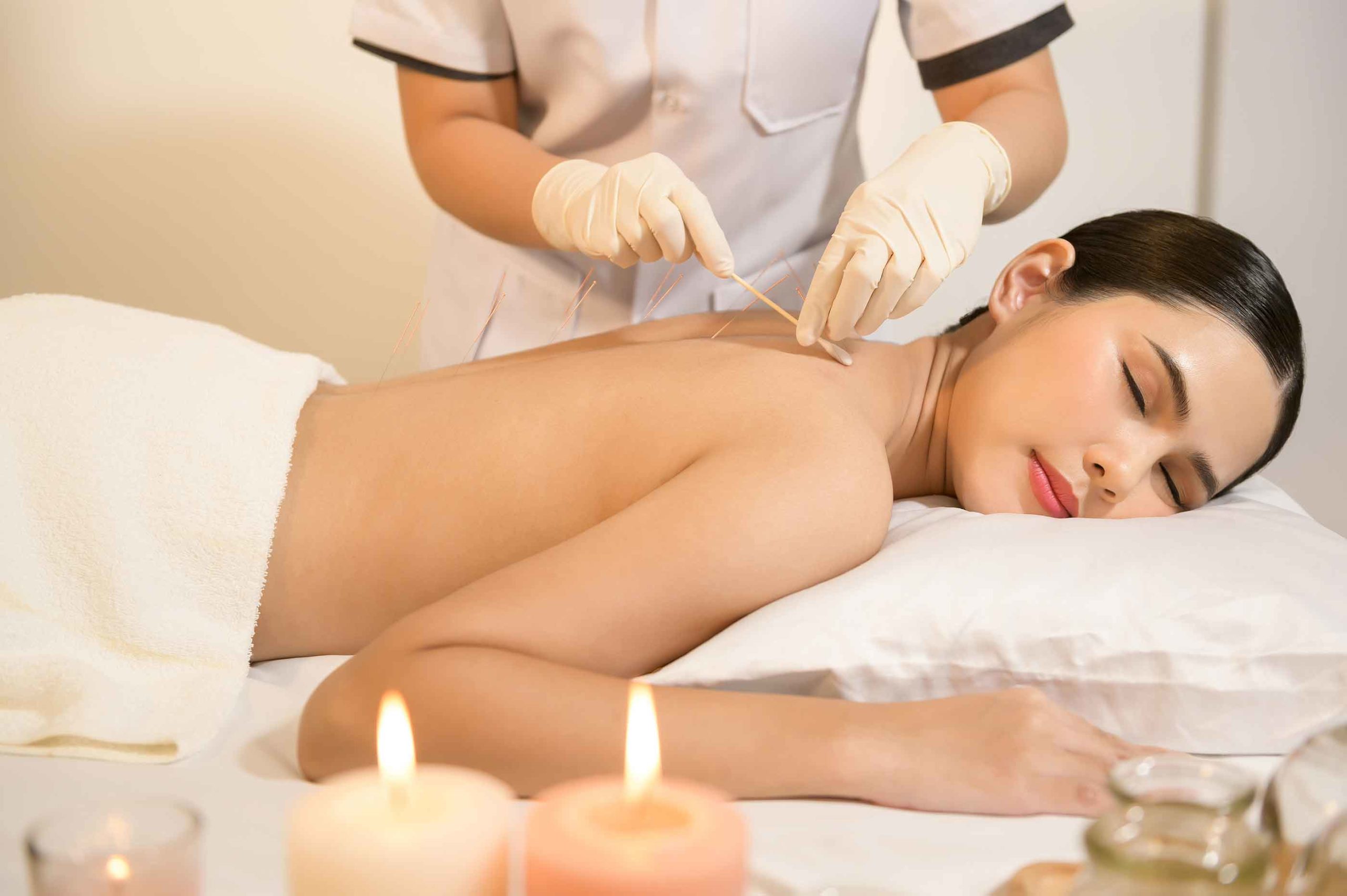
Chronic stress and long-term illnesses or injuries can weaken or negatively affect our body’s own physiological processes. Acupuncture can help counter these effects by helping the body repair, regulate and heal. In TCM terms, acupuncture helps one by improving Qi and Blood circulation to the Kidneys and other affected organ systems based on the physician’s findings. It is recommended to have a consultation with a TCM practitioner so that he or she can select acupuncture points that would be best suited for your body constitution.
Alternatively, if acupuncture is not accessible to you, you can try using acupressure massages to help manage the effects of burnout. Below are a few acupressure points that you can try:
|
百会 Bai Hui
|
Location At the crown of the head. You can place a finger at the top of each ear and follow an imaginary line upwards. The point should be where the two fingers meet.Function Helps regulate the movement of Yang energy in the body. As the point is on the highest point of the body, massaging this point can raise the Yang energy to alleviate depression and sadness. At the same time, it can help to ground energy to ease anxiety and overthinking. It also helps to clear the mind to help one stay focused and present. |
|
印堂 Yin Tang
|
Location Between the eyebrows.Function Helps calm the spirit (神) and reduces the effects of emotional restlessness and anxiety. It is a common point to use for treatment for emotional well-being. |
|
三阴交 San Yin Jiao
|
Location 3 inches (or 4 fingers width distance) from the highest point of the inner ankle, slightly behind the bone (tibia).Function This acupoint translates to ‘Three Yin Crossing’, as this is where the three Yin meridians (Spleen, Liver and Kidney meridians) pass. These three organ systems are also easily taxed during times of stress, and so, massaging this point helps build the Blood and Yin, while moving the stagnant energy in these three meridians. |
Note: When locating the points, feel for a tender spot or a point where your finger seems to dip slightly. Spend 30 seconds massaging each point with firm pressure, while taking nice deep breaths.
Tech-Enhanced Therapies & Supplements
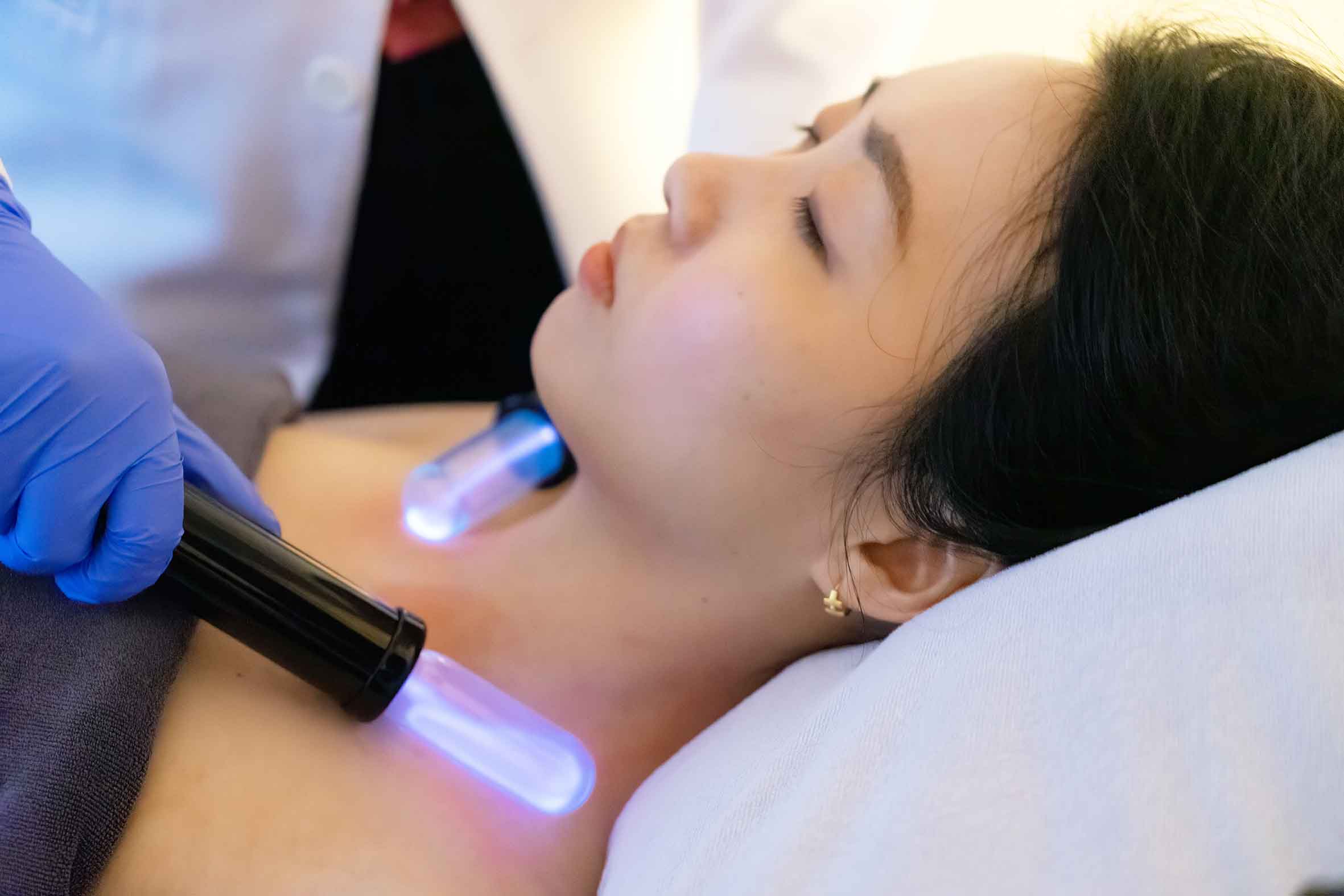
Burnout can compromise many of our body systems, which includes our lymphatic system. Our lymphatic system is a passive system that is dependent on muscle contractions to push the lymph fluids along our lymphatic vessels. Emotional stress is one of the main factors that contribute to a congested lymphatic system, which can lead to symptoms like chronic fatigue, brain fog, depression etc.
Electro-Lymphatic Therapy, or ELT, is a technology that helps stimulate proper flow and drainage of the lymphatic system. With a healthy, decongested lymphatic system, it ensures that it can achieve the functions of:
1) Maintaining a healthy immune system
2) Clearing toxins from our body
3) Maintaining the balance of our body fluids
At Oriental Remedies Group, we use a FDA-registered ELT machine to encourage the flow of our lymphatic system. Depending on which penetration depth chosen, we are able to clear both superficial as well as deeper layers of the lymphatic system, ensuring an overall good clearance and decongestion. This is crucial to help boost one’s immune system as well as combating the effects of burnout.
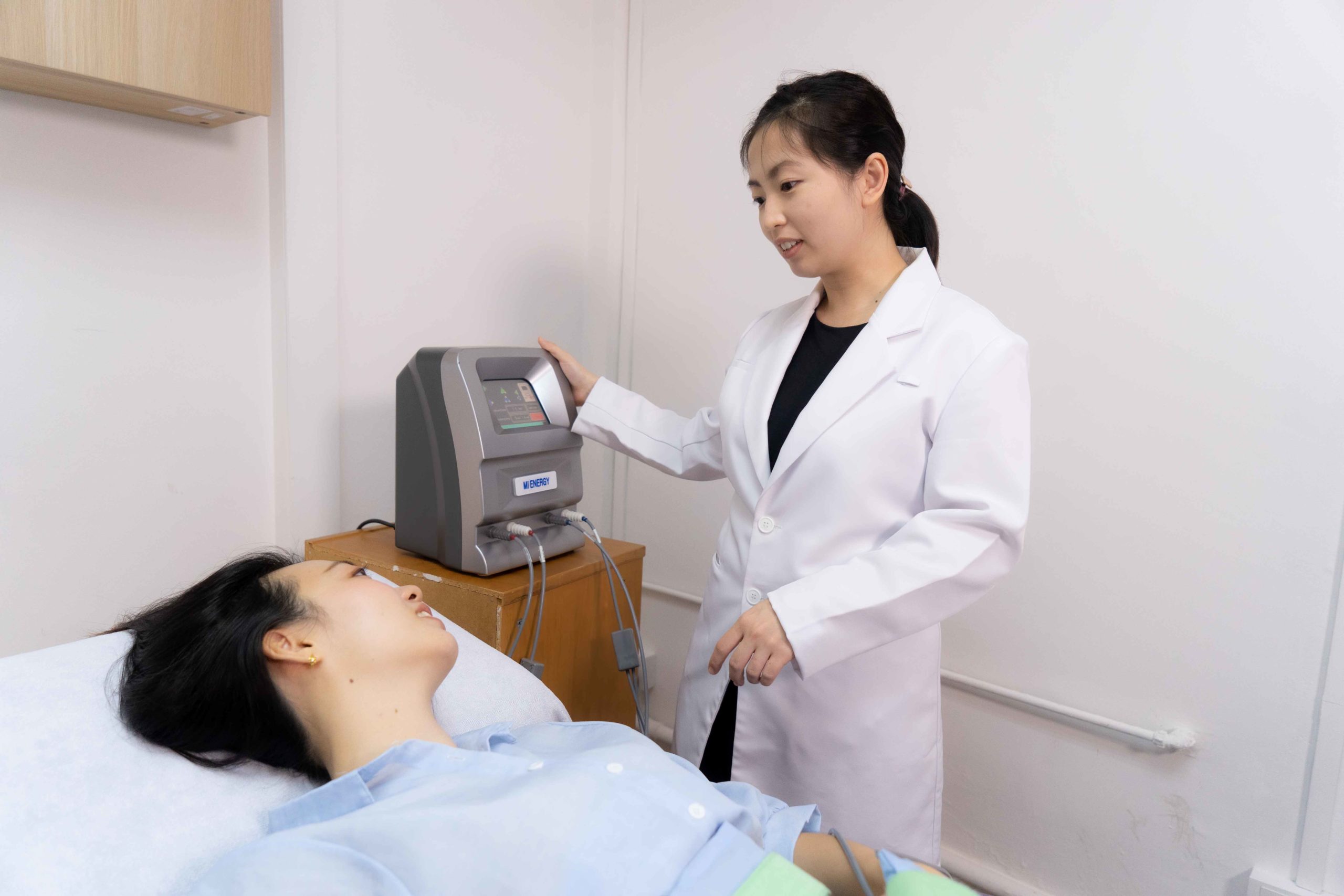
Apart from affecting our work performance, burnout can negatively impact our sleep and mental health as well. A study has shown when comparing two study groups, one experiencing burnout and the other a control group, the group with burnout has significantly higher issues with insomnia, sleep fragmentation, and non-restorative sleep [4]. The burnout subjects also have higher levels of anxiety and depression scores [4].
Cell Pro Therapy (CPT) is a therapy which utilizes a Japanese device to supply up to 20 million negative ions to the body. Negative ions are naturally occurring and are necessary in the maintenance of our cells’ metabolism. Furthermore, by targeting the neck and shoulder regions, the negative ions can stimulate the patients’ parasympathetic nervous system, which helps to calm the body.
Negative ions also have antioxidative properties, which are important as they enhance the cells’ metabolism by facilitating uptake of nutrients and removal of waste products (Economy Daily News, January 30, 2002). This removal of toxic metabolic waste from the cells can potentially help promote better moods for patients.
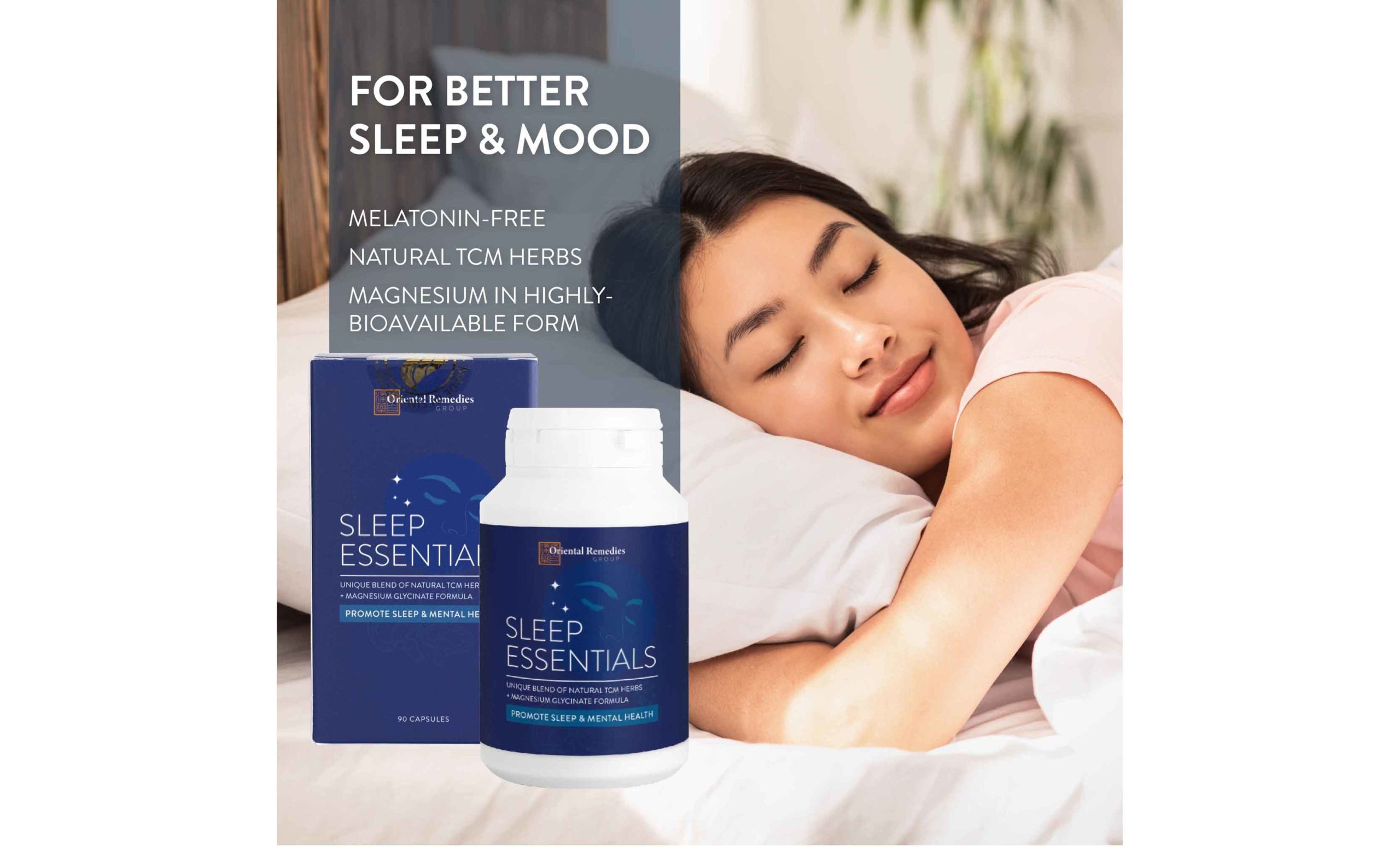
As mentioned above, the effects of burnout can extend to one’s sleep and mental health. At Oriental Remedies Group, our Sleep Essentials supplement is specially formulated with a unique blend of TCM herbs as well as certain compounds to promote sleep and improve mental health.
One of the main ingredients is Semen Ziziphi Spinosae or 酸枣仁, a herb which helps improve sleep by calming the Heart as well as nourishing the Liver to balance the body’s Yin and Yang for better sleep. Other ingredients include magnesium glycinate, 5-hydroxytryptophan (5-HTP) and vitamin B complex. Magnesium is an essential nutrient that is involved in 80% of our body’s metabolic function. One of its main functions is to calm the brain and promote relaxation, while magnesium glycinate is the best form of magnesium to help with sleep issues. 5-HTP is a chemical precursor of the neurotransmitter serotonin which helps to improve one’s mood. Serotonin then can be converted to melatonin in darkness to help one fall asleep better. Lastly, vitamin B complex regulates tryptophan, an amino acid that is a precursor of serotonin and melatonin. All the components work together to boost one’s mood and improve one’s sleep.
Lifestyle Changes to reduce burnout

Apart from medical treatments, making appropriate lifestyle changes is also beneficial in managing the effects of burnout. Below are some tips to help you take the first step in changing your lifestyle:
- Regular exercise
Understandably, exercise might be the last thing on people’s mind when they are experiencing burnout. However, it is actually a great antidote to mitigate the negative effects of stress and burnout. Apart from the physical health benefits, exercise releases the neurotransmitter endorphins, which has an analgesic effect (i.e. diminishes the sensation of pain), as well as trigger a positive feeling in the body, helping to elevate one’s mood and reducing negative emotions such as anger and sadness. The feeling that follows after a workout is often described as euphoric, or also known as a “runner’s high” can be accompanied by a positive and energetic outlook to life.
An additional tip would be to exercise outdoors in nature as studies have shown that there is a positive impact on mental health when exercising outdoors. The results of participants when exercising in natural environments reflected greater association with increased energy levels, positive engagement and feelings of revitalisation, as well as reduced negative emotions such as anger and depression [5].
- Sufficient sleep
When one is feeling exhausted, it is actually counterproductive to push yourself harder. Instead, you should get sufficient rest! Sleep is essential, not optional. Below are some tips to help with your sleep:
- Adjust to an earlier bedtime based on the number of hours of sleep you require to feel well-rested. So, if you need 8 hours of sleep, and you need to wake up at 7 a.m., then you should aim to sleep at 11 p.m. You can also choose to set an alarm 30 minutes prior to bedtime to remind yourself to start preparing for bedtime.
- Ensure a suitable ambience in your bedroom during bedtime, such as suitable temperature and adequate darkness.
- Avoid using electronic devices before bedtime, specifically 1 hour before sleep. Also, try not to watch or play anything that is too stimulating at night.
- Avoid caffeinated beverages after 3 p.m. Avoid drinking too much liquids before bedtime to prevent any unwanted bathroom trips in the middle of the night.
Try these mental wellness tips!
- Set clear boundaries
During the pandemic, many of us have transitioned into work-from-home (WFH) arrangements. While this has made it convenient for some, WFH has also resulted in the blurring of boundaries between one’s personal and professional lives.
It is important to draw a clear boundary between work and your own private lives. One way would be to set a cut-off time for work, so that you have time for yourself as well. After putting aside your work, take the time to relax and recharge for the next day.
- Find someone to talk to
One of the ways to manage stress is to reach out and talk to others. Social contact is a good way to combat stress, and talking with a good listener is one of the best ways to calm oneself and relieve stress. The person that you reach out to can be a family member, a friend, a colleague or even a therapist, but more importantly, the person should be a good listener, one who will listen attentively without expressing any judgment.
If you feel that changes need to be made to your working situation, discuss your concerns with your supervisor and try to work out a solution, be it by changing expectations or reaching compromises. Do not be afraid to speak up to create changes that are better suited to your emotional and mental wellbeing.
Relaxation techniques
While everyone has different ways to relax and unwind, here are some of the more popular and effective relaxation techniques:
- Deep breathing
Deep breathing can help activate our body’s natural ability to relax, creating a state of deep rest that can positively impact the body’s reaction to stress. It works by sending more oxygen to the brain and calming our autonomic nervous system, allowing us to calm down. - Meditation
Another popular way to relax the body, meditation can reduce stress and anxiety while improving sleep, energy levels and one’s mood. When meditating, remember to do so in a quiet environment and find a comfortable position to do so. Try to choose a meditation practice that works well for yourself as well. - Yoga
Apart from being a form of exercise, yoga can also be classified as a form of meditation. Again, there are many different forms of yoga, but try to do the ones that focus on stretching, slow movement and deep breathing, as they are more effective in reducing stress and anxiety.
In conclusion, the process of burnout recovery can be a long and tedious one, but by addressing the issue, you have already taken the first step. Take the process slowly and steadily, but do not put too much pressure on yourself at any point in time. You may not have an immediate effect, but with consistent efforts, you can develop new and effective habits that give you more energy and motivate yourself to continue to pursue the path of personal growth and development.
Your healing is the most important!
At Oriental Remedies Group, most of our physicians are trained in both Biomedical Science and TCM at Nanyang Technological University (Singapore) and China for a minimum of 5-8 years before being certified to practice in Singapore.
If you or a loved one is suffering from symptoms of burnout, we would like to help. Please contact us at +65 8087 0486 for a personalized consultation.
—–
This article is written by Physician Leow (Oriental Remedies Group, Singapore), a registered TCM physician certified by the Traditional Chinese Medicine Practitioners Board (TCMPB).
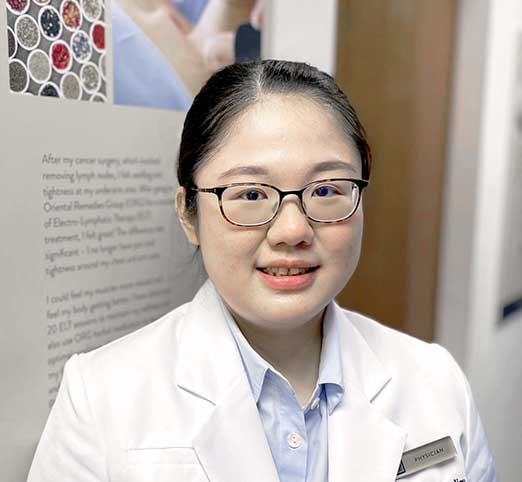
Note: all words in Italics mentioned henceforth refer to the TCM organ system and not the anatomical organs/terms referenced in western medicine.
Disclaimer:
The information on this page is for information and educational purposes only. Such medical information may relate to disease, injury, drugs and other treatments, medical devices and/or health products. Medical information does not amount to advice, and if advice is needed an appropriate professional help should be sought. The disclaimer asserts that no warranties or representations are given in respect of the medical information, and that the website operator should not be held liable if a user suffers any injury or loss after relying upon the medical information.
All wellness assessments and technology-enhanced therapies using wellness device(s) are intended for use only for general well-being purposes or to encourage or maintain a healthy lifestyle, and it is not intended to be used for any medical purposes (such as detection, diagnosis, monitoring, management or treatment of any medical condition or disease). Any health-related information provided by these devices should not be treated as a medical advice. Please consult a physician for any medical advice required.
References:
[3]: Melamed, Samuel & Shirom, Arie & Toker, Sharon & Berliner, Shlomo & Shapira, Itzhak. (2006). Burnout and Risk of Cardiovascular Disease: Evidence, Possible Causal Paths, and Promising Research Directions. Psychological bulletin. 132. 327-53. 10.1037/0033-2909.132.3.327
[4]: Metlaine A, Sauvet F, Gomez-Merino D, Boucher T, Elbaz M, Delafosse JY, Leger D, Chennaoui M. Sleep and biological parameters in professional burnout: A psychophysiological characterization. PLoS One. 2018 Jan 31;13(1):e0190607. doi: 10.1371/journal.pone.0190607. PMID: 29385150; PMCID: PMC5791983.
[5]: https://www.sciencedaily.com/releases/2011/02/110204130607.htm

